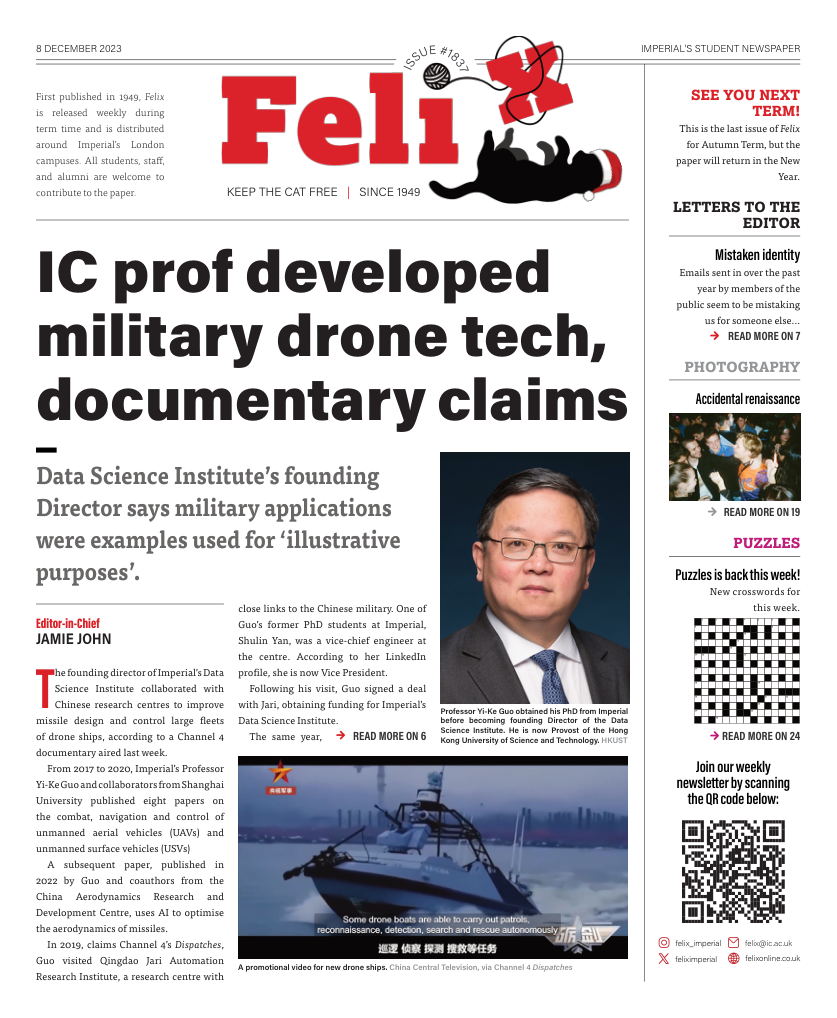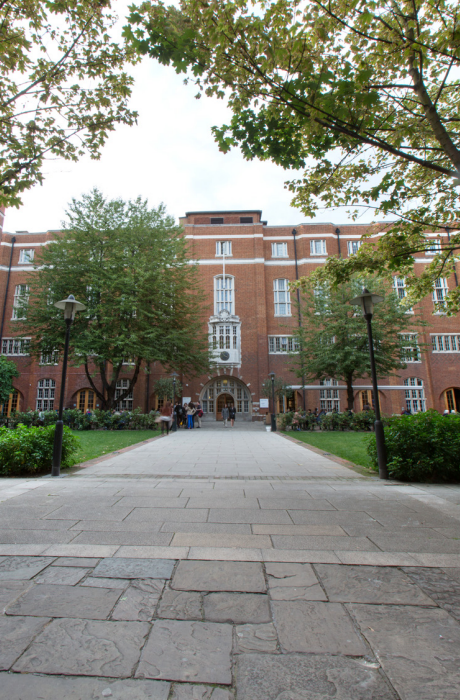Imperial prof developed military drone tech with China, documentary claims
Data Science Institute’s founding director says military applications were examples used for ‘illustrative purposes’.

The founding director of Imperial’s Data Science Institute collaborated with Chinese research centres to improve missile design and control large fleets of drone ships, according to a Channel 4 documentary aired last week.
From 2017 to 2020, Imperial's Professor Yi-Ke Guo and collaborators from Shanghai University published eight papers on the combat, navigation and control of unmanned aerial vehicles (UAVs) and unmanned surface vehicles (USVs).
A subsequent paper, published in 2022 by Guo and coauthors from the China Aerodynamics Research and Development Centre, uses AI to optimise the aerodynamics of missiles.
In 2019, claims Channel 4's Dispatches, Guo visited Qingdao Jari Automation Research Institute, a research centre with close links to the Chinese military. One of Guo’s former PhD students at Imperial, Shulin Yan, was a vice-chief engineer at the centre. According to her LinkedIn profile, she is now Vice President.
Following his visit, Guo signed a deal with Jari, obtaining funding for Imperial’s Data Science Institute.
The same year, Jari began sea trials on a military drone ship.
Imperial said that as a result of consultations with the UK Government, it terminated the Jari agreement in 2021. No research was carried out under the agreement, and the College returned the funding.

Guo told Dispatches that his work was ‘basic’, ‘open’, ‘peer-reviewed’ research, ‘written to help expand our existing base of scientific or technological knowledge rather than immediately solve specific real-world problems.’
One of his collaborations with Shanghai University, entitled ‘The combat of unmanned surface vehicles based on wolves attack’, proposes ‘a new attack strategy… using the characteristics of wolves’.
Another uses AI for ‘autonomous navigation and obstacle avoidance of USVs’, and a third outlines an algorithm to help USVs ‘intercept intruders.’
Guo claimed that applications described in the studies were examples used for ‘illustrative purposes’. He said the research has ‘applications for a variety of sectors including healthcare, fluid dynamics, real-time decision making and environmental science.’
‘The papers include viewpoints that can benefit societies worldwide,’ he added.
In December 2022, Guo was appointed Provost of Hong Kong University of Science and Technology. He remains Emeritus Professor of Computer Science at Imperial.
An Imperial College spokesperson said: ‘Clear research codes of practice apply to all staff at Imperial, and we regularly review our policies in line with evolving government guidance and legislation, working closely with the appropriate Government departments, and in line with our commitments to UK national security. Partnerships and collaborations at Imperial are subject to due diligence and are regularly reviewed.'









